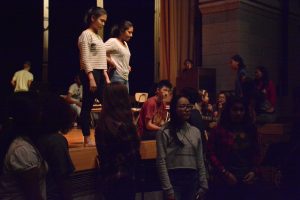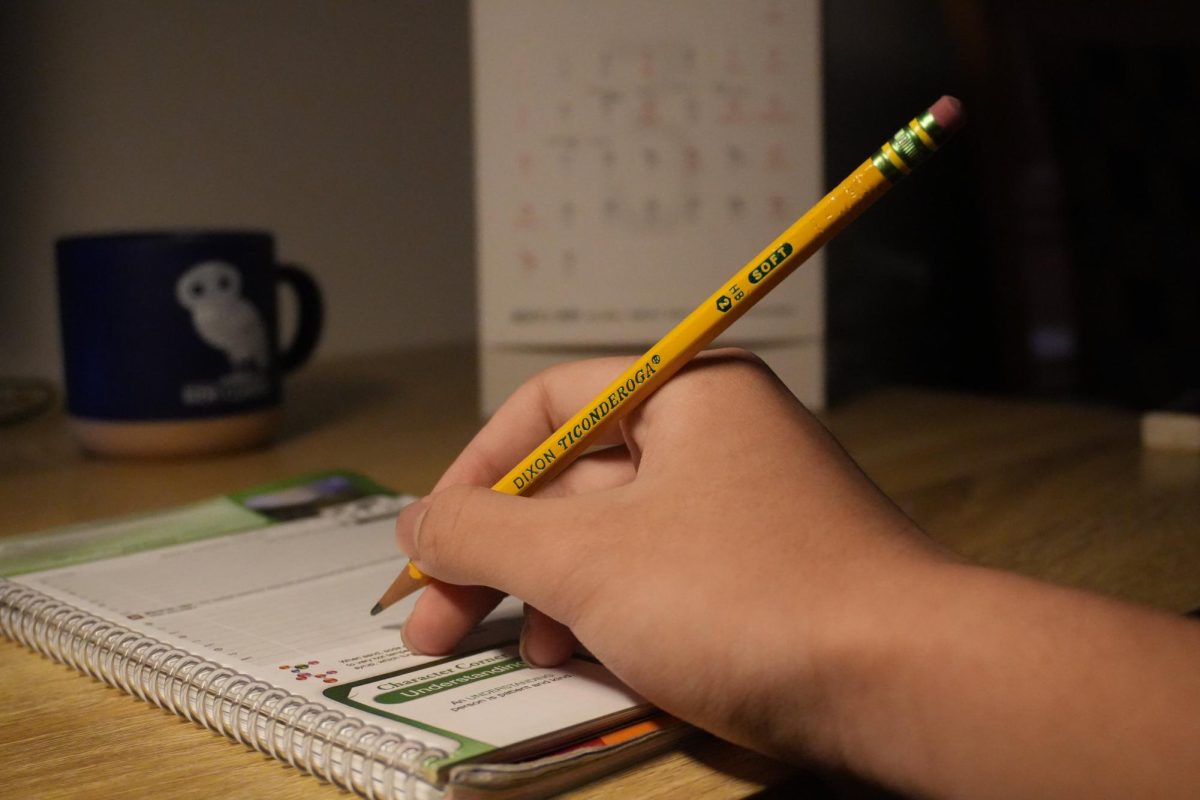
Sing! Tradition puts great emphasis on student creativity, but it seems as though students actually have a limited say in what rules govern their performances. Although SING! is supposed to be an entirely student run production, there seems to be a few discrepancies this year. Previous SING! productions were centered on pop culture, such as Marvel and Pixar. In the past, graduating senior directors would choose a theme for the next year’s productions, and students would follow through with that theme. Generally, both the Freshiors and the Semores would adhere to a general theme, but were not allowed to use the same movies or characters, and typically would not use the same music. This year, however, both teams have not only the same theme, but also the same movies and characters. This brings about a lack of diversity, risks a less attentive audience, and fuels competition to an unhealthy degree, whereas the purpose of SING! should be for students to exercise their theatrical abilities.
This problem is ultimately a result of the unclear rules surrounding SING!, leaving many students perplexed about what they can and cannot do for their respective teams. Naturally, when students are curious about what is prohibited, they try to ask the advisors, who may not have the answers. Although this is understandable, the lack of established rules create an ambiguous atmosphere. This leads to conflicts between teams over petty matters. In regards to the idea of “calling dibs,” Freshior vocal director Michal Davydov stated, “There can’t be such a thing as calling dibs when materials are meant to be provided for everyone.”
That’s not to say that there aren’t rules; at the start of the competition, the leadership teams are given a list of rules that include stipulations for song approval and auditions, such as when and how announcements are made to the student body. The problem with this is that the rules only deal with immediate issues and don’t concertize rules that are assumed to be implicit.
For example, underclassmen tend to think that seniors get priority and seniors who competed as underclassmen feel that they should have priority, given certain decisions in the past.

Senior director Nadia Khan remarked, “I think both teams wish that there was a different theme so that we could avoid this overlap. I will not say that this is specifically going to disadvantage the senior class, but rather both groups because of the direct comparisons. This would not have happened if we had a better system.”
Furthermore, there should be a clear distinction between the extent of teacher and student involvement. While SING! is a student-run production, it still requires advisors to stay after school and work with the students. When both groups know exactly how much they should be involved, there would be less of a chance of miscommunication. To end the obscurity surrounding the roles of students and teachers, the creation of a collaborative rule book can easily eliminate any issues regarding how the songs, props, and other equipment are shared among both teams. A neutral intermediary is required to prevent bickering between two teams.
If inconsistencies continue, the work of the performers and directors come under the risk of not being entertainment. Rather, the production becomes a platform solely for competition, failing to fulfill it’s purpose of uniting the school community.


























